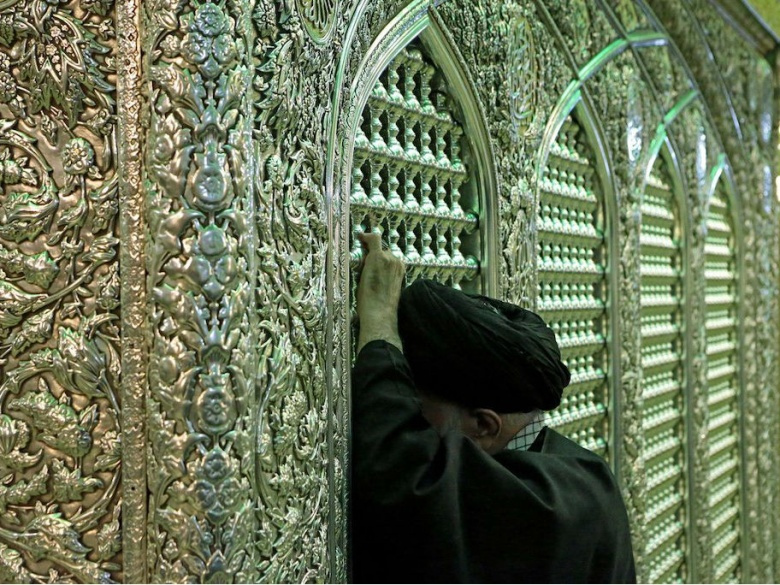Interesting history of how the present Ayatollah came to power. It appears that you can be a nobody, but if you know the right people, eventually you can become the top man.
Iran's Incredible Shrinking Ayatollah

Ali Khamenei's base of support has been vanishing for decades.
Muhammad Sahimi
May 8, 2016
Tweet

Ever since the Islamic Republic of Iran was found in the aftermath of the 1979 revolution, there has always been a fierce power struggle between hard-liners and conservatives, on the one hand, and various pragmatist, reformist and Islamic leftist factions that oppose them, on the other hand. In the 1980s, the struggle was between right-wing Islamists and Islamic leftists like former prime minister Mir Hossein Mousavi and his supporters. From the mid-1990s to 2005, a fierce power struggle raged between the hard-liners and the reformists. After the fraudulent presidential election of 2009, the struggle was transformed to one between the democratic Green Movement and the hard-liners. And since President Hassan Rouhani was elected in June 2013, a coalition of reformists and moderate conservatives, led by Rouhani and former presidents Akbar Hashemi Rafsanjani and Mohammad Khatami, has taken on the hard-liners.
According to the Constitution of the Islamic Republic, the supreme leader is the ultimate authority of the state, and is supposed to be an impartial arbiter between its various organs. That was more or less the case as long as Ayatollah Ruhollah Khomeini was the supreme leader. Although the leftist clerics, most of them his former students, were close to him, and even though he was a firm supporter of Mousavi in the 1980s, he always remained above the fray and created a balance between the two main factions. His charismatic personality, unquestionable authority and religious credentials—he was a grand ayatollah for decades—enabled him to act as a more or less impartial arbiter.
Continue reading at:
Iran's Incredible Shrinking Ayatollah
Iran's Incredible Shrinking Ayatollah

Ali Khamenei's base of support has been vanishing for decades.
Muhammad Sahimi
May 8, 2016
Tweet
Ever since the Islamic Republic of Iran was found in the aftermath of the 1979 revolution, there has always been a fierce power struggle between hard-liners and conservatives, on the one hand, and various pragmatist, reformist and Islamic leftist factions that oppose them, on the other hand. In the 1980s, the struggle was between right-wing Islamists and Islamic leftists like former prime minister Mir Hossein Mousavi and his supporters. From the mid-1990s to 2005, a fierce power struggle raged between the hard-liners and the reformists. After the fraudulent presidential election of 2009, the struggle was transformed to one between the democratic Green Movement and the hard-liners. And since President Hassan Rouhani was elected in June 2013, a coalition of reformists and moderate conservatives, led by Rouhani and former presidents Akbar Hashemi Rafsanjani and Mohammad Khatami, has taken on the hard-liners.
According to the Constitution of the Islamic Republic, the supreme leader is the ultimate authority of the state, and is supposed to be an impartial arbiter between its various organs. That was more or less the case as long as Ayatollah Ruhollah Khomeini was the supreme leader. Although the leftist clerics, most of them his former students, were close to him, and even though he was a firm supporter of Mousavi in the 1980s, he always remained above the fray and created a balance between the two main factions. His charismatic personality, unquestionable authority and religious credentials—he was a grand ayatollah for decades—enabled him to act as a more or less impartial arbiter.
Continue reading at:
Iran's Incredible Shrinking Ayatollah


